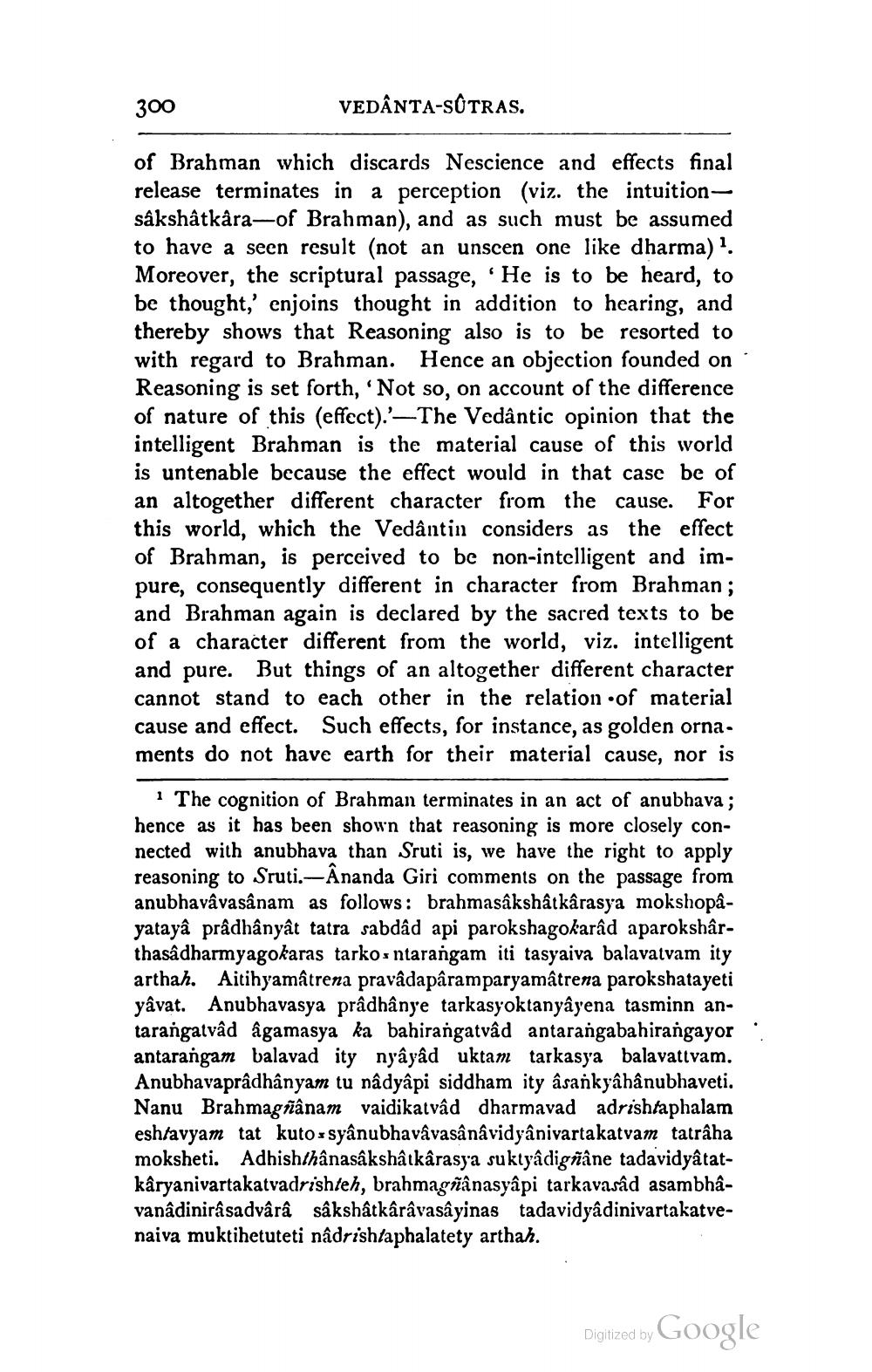________________
300
VEDÂNTA-SÛTRAS.
of Brahman which discards Nescience and effects final release terminates in a perception (viz. the intuitionsâkshâtkâra-of Brahman), and as such must be assumed to have a seen result (not an unscen one like dharma). Moreover, the scriptural passage, 'He is to be heard, to be thought,' enjoins thought in addition to hearing, and thereby shows that Reasoning also is to be resorted to with regard to Brahman. Hence an objection founded on Reasoning is set forth, 'Not so, on account of the difference of nature of this effect).'—The Vedântic opinion that the intelligent Brahman is the material cause of this world is untenable because the effect would in that case be of an altogether different character from the cause. For this world, which the Vedântin considers as the effect of Brahman, is perceived to be non-intelligent and impure, consequently different in character from Brahman; and Brahman again is declared by the sacred texts to be of a character different from the world, viz. intelligent and pure. But things of an altogether different character cannot stand to each other in the relation of material cause and effect. Such effects, for instance, as golden orna. ments do not have earth for their material cause, nor is
1 The cognition of Brahman terminates in an act of anubhava; hence as it has been shown that reasoning is more closely connected with anubhava than Sruti is, we have the right to apply reasoning to Sruti.- Ananda Giri comments on the passage from anubhavâvasanam as follows: brahmasâkshâtkârasya mokshopâyatayâ prâdhânyât tatra sabdâd api parokshagokarâd aparokshârthasâdharmyagokaras tarkosntarangam iti tasyaiva balavatvam ity arthah. Aitihyamâtrena pravadaparamparyamâtrena parokshatayeti yâvat. Anubhavasya prâdhânye tarkasyoktanyâyena tasminn antarangalvâd âgamasya ka bahirangatvad antarangabahirangayor antarangam balavad ity nyâyâd uktan tarkasya balavattvam. Anubhavapradhânyam tu nâdyâpi siddham ity âsankyâhânubhaveti. Nanu Brahmagñânam vaidikatvad dharmavad adrishtaphalam eshtavyam tat kutossyânubhavâvasânâvidyânivartakatvam tatrâha moksheti. Adhishthanasâkshâtkârasya suktyâdigñâne tadavidyâtatkâryanivartakatvadrishteh, brahmagñanasyâpi tarkavasâd asambhavanadinirâsadvâra sâkshâtkârâvasâ yinas tada vidyadinivartakatvenaiva muktihetuteti nâdrishtaphalatety arthah.
Digitized by Google




